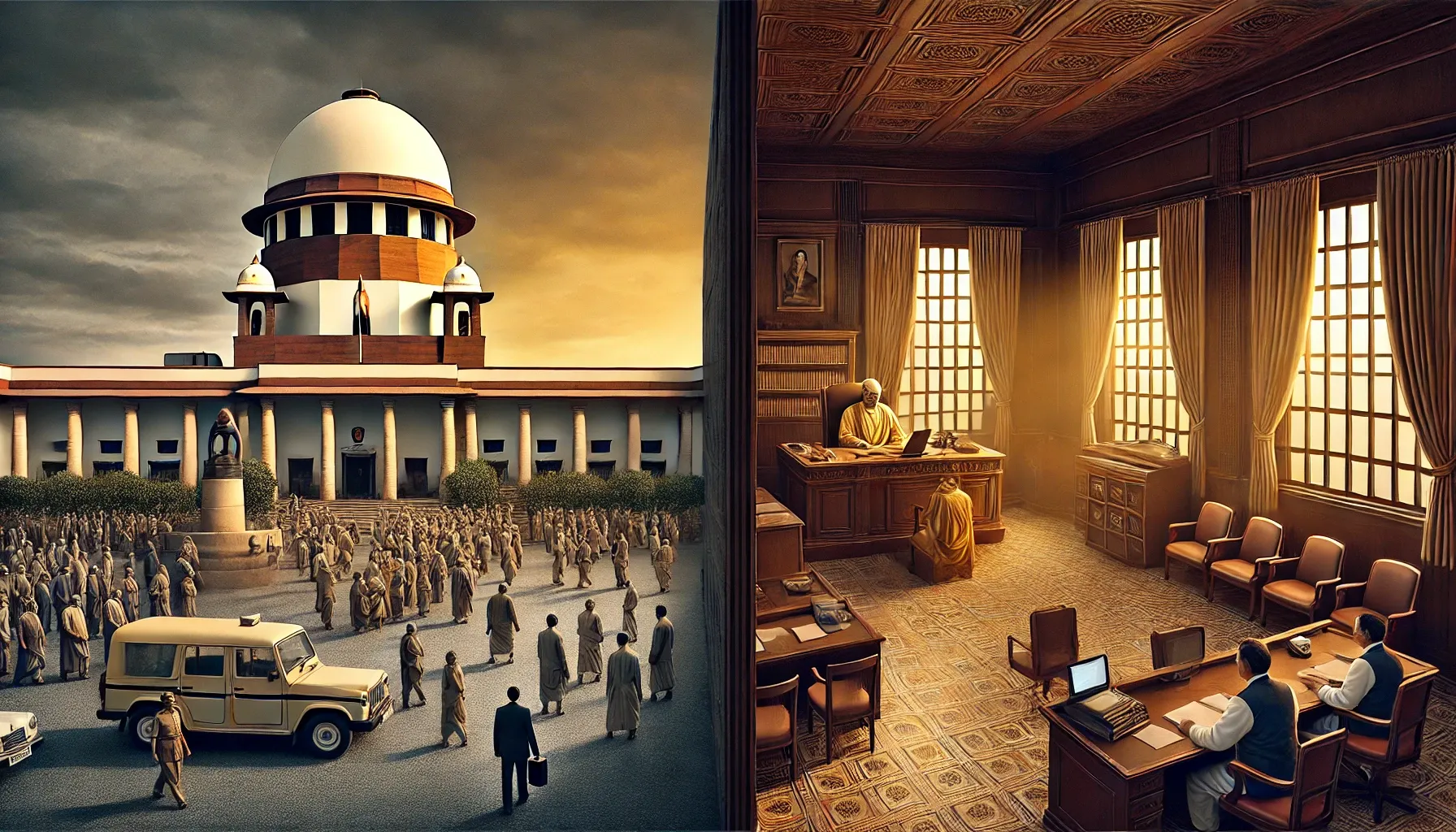The Supreme Court quashed a case under the SC/ST Act, ruling that caste-based insults within a private office do not constitute an offence unless made in public view, impacting similar legal cases.

In a significant ruling, the Supreme Court of India on January 31, 2025, quashed a criminal case under the Scheduled Castes and Scheduled Tribes (Prevention of Atrocities) Act, 1989 against an individual accused of using caste-based insults in a government office chamber. The decision, delivered by a bench comprising Justices BR Gavai and AG Masih, clarified that for an offence to be recognized under Sections 3(1)(r) and 3(1)(s) of the Act, the abuse must occur in public view.
The Court emphasized that since the incident occurred inside a private office where no members of the public were present, it does not fall under the legal definition of an SC/ST Act violation.
- “If the alleged offence takes place within the four corners of the wall where members of the public are not present, then it cannot be said that it has taken place at a place within public view,” the Court observed.
The ruling reaffirms previous Supreme Court interpretations regarding the requirement of public view in caste-based offences.
Case Background
- The case arose from an incident inside the private chamber of a Revenue Inspector in a government office.
- The Appellant, upon learning the caste of the complainant, allegedly remarked:
“If you people are appointed in Government service, you all will do like this only…” - The Appellant then scolded the complainant, called him by his caste name, and used vulgar language.
- Other colleagues of the complainant intervened and removed the Appellant from the chamber.
- After the High Court refused to quash the case, the Appellant moved to the Supreme Court.
Supreme Court’s Observations
- No prima facie case was made against the Appellant under Sections 3(1)(r) and 3(1)(s) since the alleged caste-based insult happened inside a private office.
- The Court reiterated that the SC/ST Act penalizes caste-based abuse only if it is made in public view.
- It held:
“It is thus clear that even as per the FIR, the incident has taken place within the four corners of the chambers of the complainant. The other colleagues of the complainant arrived at the scene after the occurrence of the incident.” - Therefore, the offence does not fall under the provisions of the SC/ST Act.
Legal Provisions Examined
- Section 3(1)(r) of the SC/ST Act: Penalizes intentional insult or intimidation of an SC/ST member with the intent to humiliate in public view.
- Section 3(1)(s) of the SC/ST Act: Punishes caste-based abuse of an SC/ST member in public view.
- Since the abuse did not happen in public, no offence was committed under these sections.
Reference to Previous Supreme Court Judgments
The Court relied on precedents interpreting the term “public view” in similar cases:
- Swaran Singh v. State (2008) 8 SCC 435
- The SC held that if caste-based abuse occurs inside a private home or office where the public is not present, it does not qualify as an offence under the SC/ST Act.
- Hitesh Verma v. State of Uttarakhand (2020) 10 SCC 710
- The SC ruled that to constitute an offence, the incident must occur in an open place where outsiders can witness it.
Final Judgment
- The Supreme Court quashed the criminal case against the Appellant.
- It set aside the High Court’s refusal to quash the FIR.
- The Court ruled:
“We are, therefore, of the considered view that since the incident has not taken place at a place which can be termed to be a place within public view, the offence would not come under the provisions of either Section 3(1)(r) or Section 3(1)(s) of the SC-ST Act.” - Consequently, the appeal was allowed, and the case was dismissed.
Case Title: Karuppudayar v. State STATE REP. BY THE DEPUTY SUPERINTENDENT OF POLICE, LALGUDI TRICHY & ORS.
Attachment:





